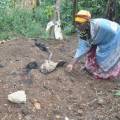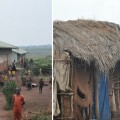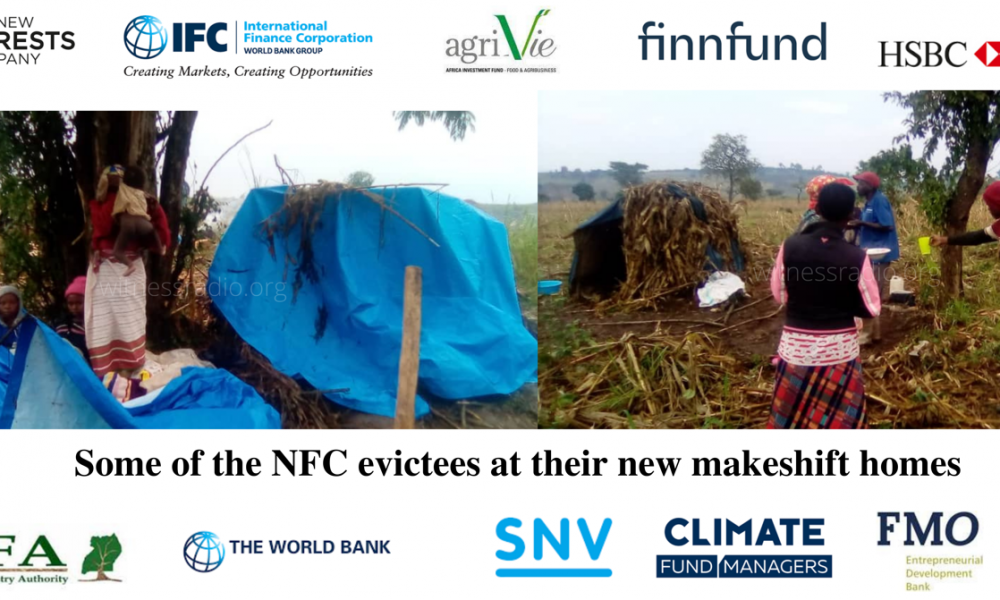By Witness Radio – Uganda.
Thousands of poor smallholder farmers that lost their livelihood to a forced eviction carried out by the New Forest Company (NFC) have decided to pick up the broken pieces and embark on a new journey to rebuild their lost glory. Armed with high hopes, the evictees are determined to acquire a three-year lease for 500 acres of land.
Purposely, the land is for agriculture, which was their sole source of income before being forcefully evicted by NFC which benefits from carbon credit financing. The chairperson of the evicted community said they have so far accessed 205 acres of land on a gentleman’s agreement from ‘good landlords’ whose lease fees will be partly paid after seasons’ harvests. The land is being occupied by 130 NFC victims. Evictee leaders’ target is that all NFC evictees get land to live on like they hitherto lived.
The chairperson of the evictees further confirmed that after a brutal eviction, many of the affected families were scattered in neighboring districts like Kassanda, Mubende, Hoima, Kakumiro, Kyegegwa, Rakai, Kibaale, Kagadi, and Kamwenge among others looking for survival.
“After over 15 years of suffering. A few of us resolved to start looking for our colleagues and get re-united to start advancing our original dreams. When people find something to do like finding land to grow food, everyone will be able to contribute some money to our causes and look for another piece of land to rent or buy so that we can live and feed our families. When we traveled and met them. We informed them about the proposal, and they accepted. It is now three months ever since we started farming on this land,” A leader of the NFC evictees said.
A glance at a village, where NFC evictees camped, you will see makeshifts littered everywhere and covered with blue tarpaulins. The residents have embarked on tilling their land preparing for the reason. They vowed to channel their eviction-related anger towards farming.
To many of them, this is not just a land lease, but a new lease of life to them. The heydays of the 2000s are creeping back. They wake up earlier to till their gardens.
“Our life is back. We are not used to that life of calling for support from the government. If we have land we can support our families,” a joyful 45-year-old Munguzi Asanansi not a real name due to fear of retaliation from the company told Witness Radio-Uganda. His family lives in a rental unit provided to him by a friend in the Kyegegwa district.
Between 2006 and 2010, more than 900 families in 7 villages in Mubende were evicted to make a way for the UK- based New Forests Company (NFC). The villages included; Kyamukasa, Kanamire, Kyato, Kisita, Mpologoma, Kigumbya and Kicucula.
NFC was founded in 2004 with the “vision” of producing “sustainable” timber in East Africa amidst rampant deforestation. It was funded by Agri-Vie Agribusiness Fund, a private equity investment fund, and UK-bank HSBC Private Equity.
NFC is currently also benefiting from a new project supported by the Dutch Fund for Climate and Development (DFCD); 160 million euros (more than 185 million dollars) from the Dutch government fund that aims to mobilize private sector finance into carbon projects. The DFCD is managed by investment manager Climate Fund Managers (CFM), NGO Worldwide Fund for Nature Netherlands (WWF-NL), and NGO SNV, and it is led by the Dutch Development Bank, FMO. (1)
In August 2020, DFCD approved a 279,001 euros (around 327,000 dollars) grant and WWF technical assistance package for The New Forests Company (NFC), intending to develop the final business investment proposal for carbon certification in Uganda, for sustainable smallholder growth and timber market diversification.
This in reality would translate into generating carbon finance to support expanding their monoculture plantations and land grabbing.
In 2005, the tree plantations company signed a deal with Uganda’s National Forestry Authority (NFA) to develop 20,000 hectares of tree plantations in the Namwasa and Luwunga forest reserves under the carbon trading program, a market-based approach to privatize the carbon dioxide stored in trees for selling it as carbon credits to polluters.
Namwasa residents felt betrayed by their government which fronted profit-making ahead of their livelihood. “Some residents were not compensated. Even those that the Company claimed it compensated, are still struggling, and wallowing in poverty. We were duped and cannot trust the government again,” revealed a resident who preferred anonymity
A 59-year-old Nguzoba Stephie, not his real name due to fear of retaliation from the company still recounts the misery caused by the eviction. He said on a fateful day, he lost his garden of 35 acres in Kicucula village, houses were destroyed and livestock was looted. His property was not an inheritance but the fruit of hard work.
“I received no compensation after the eviction not even being resettled and now my family of 14 lives a miserable life. We currently live on my brother’s acre of land in the Rakai district. My children have nothing to eat. They don’t go to school. I also don’t have money to foot their medical bills when they fell sick,” he added.
Namugera Harriet (not real name), a former resident of Mpologoma is also among those that were evicted. Her family of 10 stays in Kampindu where residents were resettled. She says the harvests in Kampindu are poor due to barren rocky soils. She has never benefited from the Kampindu land. Her family too is struggling and children often starve due to scarcity of food.
“When I had this opportunity, I rushed to take it because the fact is Kampindu land is not land. Our harvests are always poor yet the family is bigger. In the end, it is difficult to support it. What some of us could do was to labor in people’s plantations to get what to feed the family,” she said.
The trio Nguzoba, Namukisa and Munguzi are beneficiaries of the land lease project. They are among the 130 families, who have so far gotten land. They said with this land, they shall be able to support their families and try to cope with better lives and probably wipe away the tears of 15 years of misery.
“We have suffered a lot. We have lost our dear ones just because, we have no money to pay hospital bills. Our children are married off at a tender age because we can’t afford education bills and many other related situations,” Mr. Patricia Kabuye not real name, another beneficially said.
Residents lauded their leaders for this achievement. However, the prayers and efforts of their leaders are to secure enough land for all residents who were evicted.
“Once we secure land for all people that will be a good move. We expect more than 500 acres on the same land for the families,” Mr. Ndagize told Witness Radio-Uganda.
He added that the communities were allowed to buy that same land once they have enough money.
The evictee leader further says 34 of the evictees have died due to eviction-related injuries and illnesses.
A leader of a village which is hosting evictees said, they welcomed the developments in the community and are looking forward to supporting them.
“That land has been free for many years. We are happy that people shall be settling and utilizing it,” he added.
When we spoke to the NFC about the poor lives people are living in and its failed attempts to secure them enough land, their Corporate Social Responsibility Programme Manager, Mr. Kyabawampi Alex, in emailed documents said four hundred and fifty-three households were carefully selected by the Resettlement Committee and were resettled on the land, now known as the Kampindu Settlement and priority was given to those in most need.
“Residents were encouraged to form a Cooperative. They named it Bukakikama Cooperative Society Limited representing the affected communities. 600 Million Uganda shillings (about 168,921 dollars) were wired on its account was able to purchase 576 acres of productive land in the Mubende district and priority was given to households most in need as the Cooperative was not able to purchase enough land to resettle every member,” the documents read.
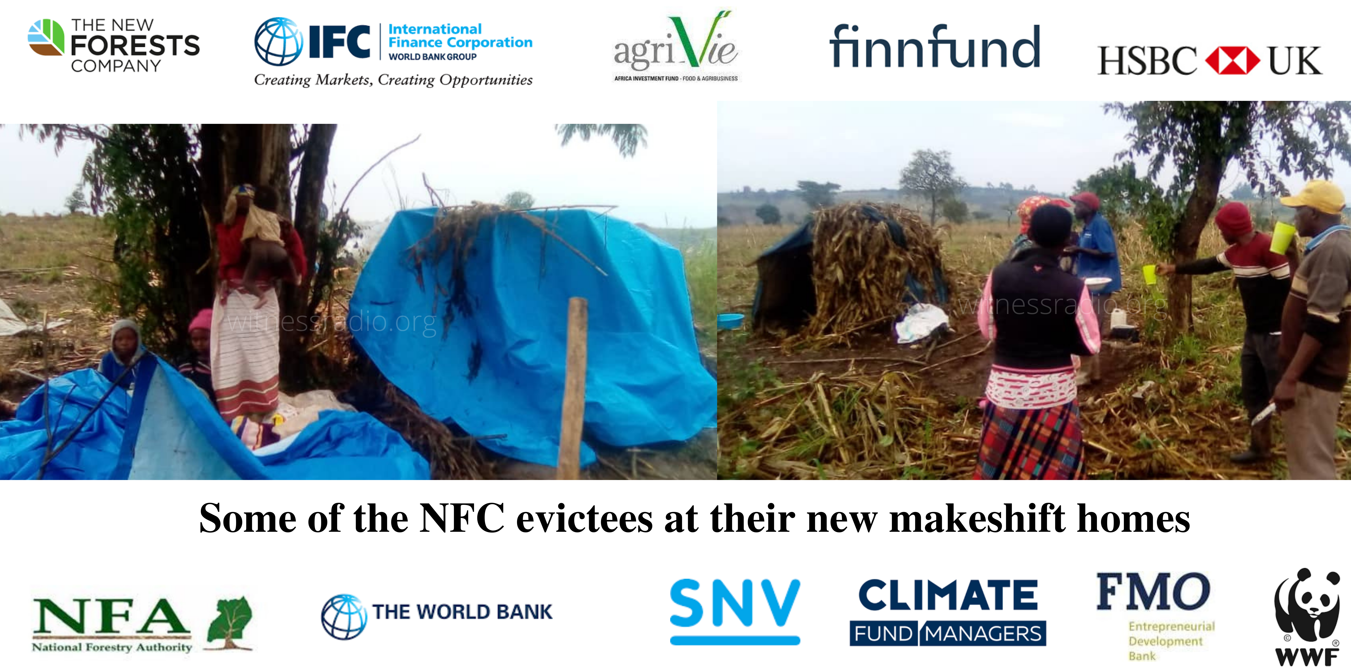

 MEDIA FOR CHANGE NETWORK2 weeks ago
MEDIA FOR CHANGE NETWORK2 weeks ago
 MEDIA FOR CHANGE NETWORK3 days ago
MEDIA FOR CHANGE NETWORK3 days ago
 MEDIA FOR CHANGE NETWORK2 weeks ago
MEDIA FOR CHANGE NETWORK2 weeks ago
 MEDIA FOR CHANGE NETWORK2 weeks ago
MEDIA FOR CHANGE NETWORK2 weeks ago
 MEDIA FOR CHANGE NETWORK4 days ago
MEDIA FOR CHANGE NETWORK4 days ago
 NGO WORK2 weeks ago
NGO WORK2 weeks ago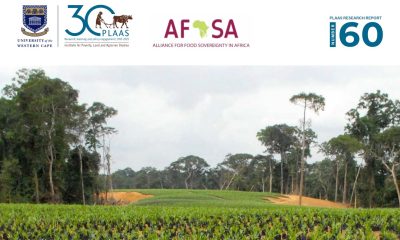
 NGO WORK2 weeks ago
NGO WORK2 weeks ago
 NGO WORK2 weeks ago
NGO WORK2 weeks ago

